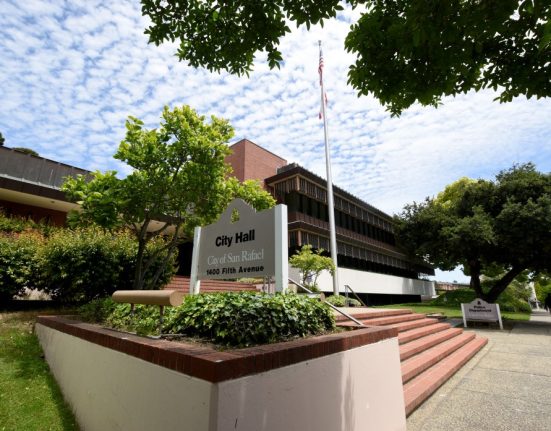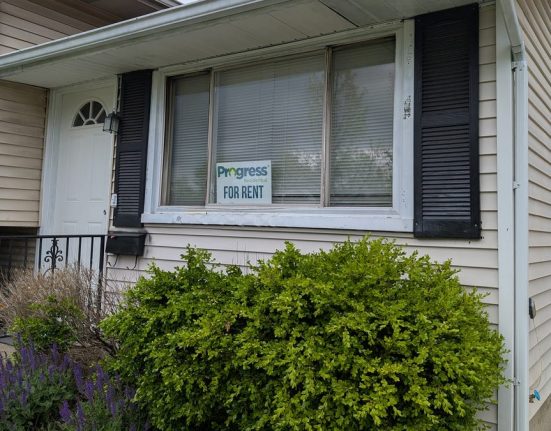Back in 2021, when Utah’s housing prices shot up amid the COVID-19 pandemic homebuying frenzy, Juanita Huertero, 56, said her landlord decided to cash in and sell her home, so “she just kicked us out.”
Just like that, Huertero and her adult son — whose medical issues prevent him from working — had to find a new place to live. She said she ended up homeless for the next six months, temporarily bunking with her daughter in Tooele. Also having been a domestic violence victim, she said she turned to South Valley Services for assistance, which eventually helped her obtain an Emergency Housing Voucher for rental assistance.
The Emergency Housing Voucher program, launched in 2021 by then-President Joe Biden as part of the American Rescue Plan Act, used $5 billion in federal funds to help house vulnerable people — those who are homeless, at risk of homelessness, or are trying to flee domestic violence or other dangerous situations, according to the U.S. Department of Housing and Urban Development (HUD).
Since then, Huertero said that voucher has helped keep a roof over her and her family’s head. Currently, she lives on a multiplex in Salt Lake City with her elderly aunt and her adult son, both of whom rely on her as a caretaker. She works at a local housing authority — where she helps people like herself get housing assistance, trying to “give back” in as many ways as she can.
But without the voucher, which she said pays for roughly half of their $2,200 rent, Huertero wouldn’t know what to do.
“Oh my gosh, if we didn’t have that, we probably wouldn’t be able to make rent,” she said, adding that even with the rental assistance she at times struggles to make ends meet between the cost of utilities, groceries and gas for her commute.
Huertero — who was born in San Diego and moved to Utah decades ago, in 1996, in search of a better life — is one of hundreds of Utahns who could lose their Emergency Housing Voucher assistance earlier than expected unless Congress acts.
But the program, faced with rising housing costs, is quickly running out of money. Federal officials expect the funds to run dry by the end of 2026, according to a letter HUD sent to housing agencies across the country, including those in Utah. It advised housing authorities to “manage your EHV program with the expectation that no additional funding from HUD will be forthcoming.”
How many vouchers are at risk in Utah?
At least 281 vouchers are currently being used in Utah, according to HUD’s website. That number is small compared to other states like California, where nearly 15,500 vouchers are at risk, according to the Associated Press. In total, roughly 60,000 people across the country could lose their rental assistance and face eviction at the end of next year unless Congress sets more money aside for the program.
Janice Kimball, CEO of Housing Connect (Salt Lake County’s housing authority) received one of those letters from HUD. In Salt Lake County, Emergency Housing Vouchers are helping keep at least 97 people or families housed.
“I think for this fiscal year, we’re probably OK,” she told Utah News Dispatch. “But we’re really worried about next fiscal year.”
Looking ahead to when the funds are set to expire in 2026, Kimball said “we’re trying to figure out how to keep those folks housed” by transitioning them or absorbing them into other programs, wherever possible. The vast majority of Utahns receiving assistance through Housing Connect do so with Section 8 vouchers, which Kimball said support about 3,000 households.
But without more federal dollars, she said Salt Lake County would not be able to sustain its 97 Emergency Housing Vouchers long term.
“We don’t have enough of our own funds to do that,” she said, adding that the average cost per unit the vouchers help fund cost about $1,110 per month, “so we’re spending just over $110,000 per month to keep those households housed.”
The Housing Authority of Salt Lake City has also distributed a big chunk of Utah’s Emergency Housing Vouchers. Currently, 77 vouchers are being used, according to Britnee Dabb, deputy director of Salt Lake City’s housing authority.
Though Dabb said the authority has been allocated funding for 98 vouchers, she said her team has moved some of the households to other long-term programs they qualify for instead of waiting for the funds to expire.
But as for the other 77 still in use?
“If we can’t find programs that the households qualify for and are open, these families will lose the rent subsidy and have a large probability of becoming homeless,” Dabb said.
What now?
To not cause a panic, Kimball said Housing Connect hasn’t been notifying renters just yet of the program’s expiration date, given there’s still so much uncertainty around what federal officials and Congress could do next.
In the meantime, she said “we’re hoping that we’ll get additional information from HUD, and we’re hoping that we’ll have an idea of future funding, because that gives us the tools to know what we can do and what we can’t do.”
How many Emergency Housing Vouchers are at risk in Utah
Ogden Housing Authority: 19
Salt Lake County Housing Authority: 97
Salt Lake City Housing Authority: 77
Provo Housing Authority: 27
Utah County Housing Authority: 32
Carbon County Housing Authority: 6
St. George Housing Authority: 17
Cedar City Housing Authority: 12
“The other thing that’s really frustrating is that Congress has not passed a budget for 2025, so we’re operating on information that we think is current based on last year,” she said.
Since the program isn’t expected to end until around November 2026, Kimball added “we have a little bit of time to kind of think this through. So we’re hoping we can have the budget numbers in before we have to start making those calls.”
Still, she worries the program’s expiration will cause a setback during a time when housing in Utah and across the country continues to be a painful issue for so many Utahns and Americans.
“Right now, there’s such a deficit of affordable housing that it’s really hard for low-income households to be able to find a stable place to live,” she said. “We should be adding to the mix to help families stay housed. And so, any resource that you remove from the community is detrimental.”
Kimball said housing authorities are “going to do everything they can to keep people housed,” but she said now is a “good time” for Utahns to reach out to their congressional leaders and “let them know what the value of housing is for you and your family.”
In the past, when voucher programs have been awarded and expire, they are usually extended, Kimball said, “and it’s because of this reason: once you get households or families entered into leases, it’s hard to unwind that. Usually it’s just been extended.”
But under Trump’s administration and the GOP-controlled Congress, it’s unclear whether that will happen.
Kimball said the Emergency Housing Voucher program has helped hundreds of Utahns move from unstable housing or homelessness, to a safe, affordable situation.
“They have some choice in where they can live. It gives them breathing room. … They can start building from there,” she said. “Affordable housing is like the foundational game changer. It really keeps people stable and allows them to live.”
Kimball said she “can’t even imagine having to tell these households that we can’t house them.” Though it hasn’t come to that, at least not yet, Kimball said she does worry it would be “devastating” to those renters.
While Utah’s number of Emergency Housing Vouchers is small compared to other states, to Huertero, it would be life altering.
She said she’s been working hard to complete HUD’s five-year Family Self-Sufficiency Program — which helps teach budgeting, saving and other financial goals while setting aside money whenever Huertero gets a salary bump in an escrow account that she can later use to buy a home. But she said she probably has another four years before she could graduate from that program.
If the Emergency Housing Voucher program expires, Huertero worries she’ll be forced to go back on affordable housing waitlists.
“I’m going to get on any wait list I can, just in case,” she said.
Thinking about thousands of others like her who are at risk losing their rental assistance, Huertero choked back tears.
“I can’t believe, honestly, that they would (stop) that funding. I mean, this population that I’m included in. We’re really vulnerable. We’ve been through a lot mentally,” she said. “I’m really struggling to try to understand all this.”
She acknowledged that President Donald Trump’s administration is looking to reign in federal spending, but pointing to chaos and uncertainty around other frozen funds or cuts, Huertero said she wishes the approach could be more compassionate.
“I get that, yeah, there are some things that really do need to change,” she said. “But it didn’t need to change all in one day, all in one month. You know, he has four years to make these changes.”







